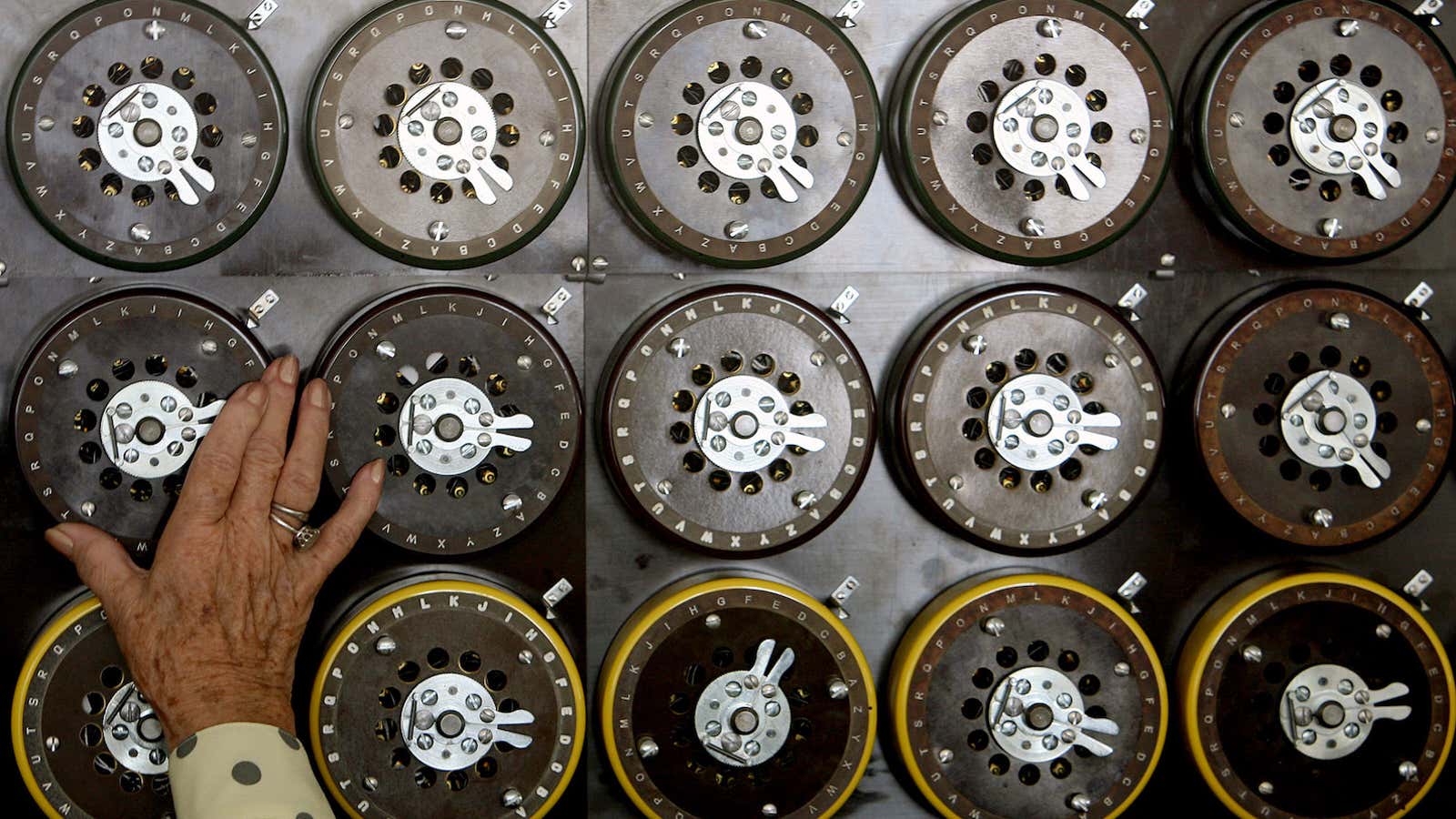Thanks to major leaps in technology of late, we may now be in the age of AI-generated pop music. But a machine in the 1950s did it first.
British computer scientist Alan Turing, famous for his pioneering work with code-breaking during World War II and often known as the father of computing, made the earliest known recording of machine-generated music back in 1951. Using the massive primeval computer that took up most of the ground floor of his laboratory, Turing played and recorded three melodies: the nursery rhyme, “Baa Baa Black Sheep,” the Glenn Miller song, “In the Mood,” and—appropriately—the national anthem, “God Save the King.”
Turing’s original computer was scrapped long ago, though, and his computer-generated recording was riddled with glitches; that is, until researchers from the University of Canterbury in New Zealand this week restored the track. The first-ever known instance of computer-made music can now be heard here (mp3).
Its somber, bagpipe-like sound is endearingly clunky, and the track skitters to a stop at one point altogether, prompting a voice in the background to comment: “The machine’s obviously not in the mood.”
Of course, it’d take another 65 years for synthetic music to morph into what it is today.




